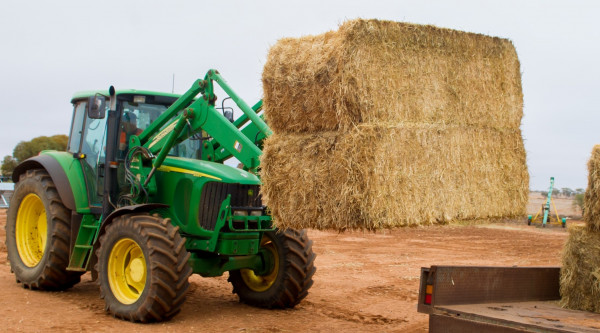LOW rainfall in winter and spring in many districts across northwest Victoria, and in the southern Mallee, has made it harder to produce good quality hay this season.
However, once it has been made it’s important to store it to minimise yield and quality losses and make it efficient to feed or load.
For cropping farmers it’s also been a difficult year causing some cereal crops intended for grain production to be cut for hay due to the dry and frosty end to the grain growing season.
By the time the decision is made to turn cereal crops into hay, it can often be too late to make good quality hay.
Some areas in the state have had a much wetter end to spring causing hay on the ground to remain damp and take longer to cure before baling.
The optimal storage for hay is under cover with protection from the weather on the side of most common wind direction.
Placing a tarp under the haystack can help prevent moisture spoilage on bottom bales.
Square bales are the most efficient to store under cover and to transport due to the weight density.
When storing in the open round bales should be in single rows and not stacked on top of each other.
This helps the rain run off the rounded edge rather than get trapped between the top and bottom bale.
Square bales should be stacked with the top two bale rows offsetting the two rows of bales beneath by half.
Square bales stored outside should be tarped or capped to help prevent weather damage. Proper storage is crucial to maintain the quality of the hay.
Hay can lose up to 15 per cent of its dry matter weight over one winter when stored poorly in the paddock.
Getting a feed test done on your hay will tell you what sort of quality hay it is, which is important if you want to sell it or feed it to livestock.
Think about using sensors or physical methods to check bale temperatures to reduce the fire risks once stacked.
















